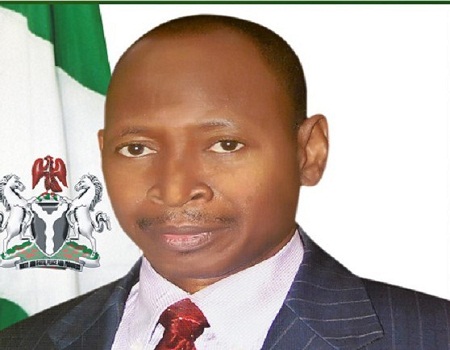The Federal Government’s fight against corruption is believed to have received a boost with the recent launch of the open treasury portal which will, among other things, encourage government’s whistle-blowing policy, check sharp practices and financial misappropriation in public institutions. It is a component of good governance; that element that makes the people to be aware of the resources that are in the hands of government.
The treasury portal is domiciled in the office of the Accountant-General of the Federation in the Ministry of Finance for access in tandem with the Federal Government’s agenda of promoting open governance. Some years back, Nigeria joined the Open Governance Partnership which is a global alliance of about 17 countries that are committed to fiscal transparency and public accountability. It is believed that this portal which seems to be a follow-up of the partnership, will herald the era of transparency that will improve public service delivery in Nigeria.
There is a general perception that the programme is an extension of open governance whereby the management of the country’s resources is being monitored real time by Nigerians. It is hoped that this process will further deepen the anti-corruption fight of the Federal Government, as people can now assess the conduct of public officials that are given the trust to manage resources.
Against the backdrop of the recent controversy over constituency projects, this portal is also an avenue for constituents to monitor whether projects have been delivered or not. Nigerians now have the right to know about the financials of government at all levels, including accruals and expenditures. Furthermore, through the portal, citizens will get to understand their roles and responsibilities in advancing public debate and increasing demand to agitate rightly and constructively for reform initiatives and policies; they will know how revenues are saved and used to narrow down the country’s widening budget deficit.
In reinforcing this transparency scheme, the Nigeria Extractive Industries Transparency Initiative (NEITI) recently inaugurated what it called the Beneficial Ownership Register, which among other things, provides information about oil block licences in the extractive industry. At the moment, Nigeria does not have the expertise, financial muscle and capacity required to manage its oil assets. This system is capable of boosting the confidence of the Independent Oil Companies (IOCs) and other investors to increase their efficiency.
But the bigger picture for NEITI is to seek amendment of the Companies and Allied Matters Act (CAMA) to enable it provide a more comprehensive register that will give information on as many companies as possible. It is the ultimate utility of this open treasury policy as an advocacy tool that will truly make it the hallmark of good governance. But there are inherent problems in challenging opaqueness through this document.
What is needed now is sincerity of government in guaranteeing that this regime of accountability and transparency is given a human face. This means opening up the space to ensure that citizens are empowered to appraise periodic reviews of public expenditures. The commitment to improve governance and equip Nigerians with the tool to study and identify financial wrongdoings will involve the input of professionals. They have the knowledge and capability to discover loopholes, and can therefore engage in massive civic education or training of citizens.
The onus is now on the National Assembly to kick-start the process of constitutional amendment to capture the sub-national levels of government given the huge resources at the disposal of these entities.
Abdulwarees Solanke,
Lagos
WATCH TOP VIDEOS FROM NIGERIAN TRIBUNE TV
- Let’s Talk About SELF-AWARENESS
- Is Your Confidence Mistaken for Pride? Let’s talk about it
- Is Etiquette About Perfection…Or Just Not Being Rude?
- Top Psychologist Reveal 3 Signs You’re Struggling With Imposter Syndrome
- Do You Pick Up Work-Related Calls at Midnight or Never? Let’s Talk About Boundaries







